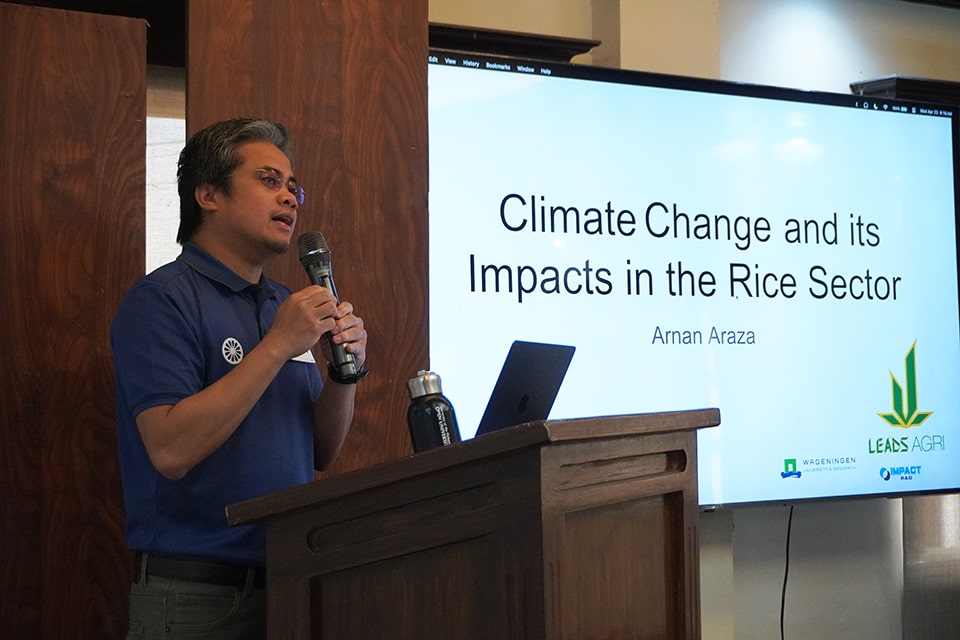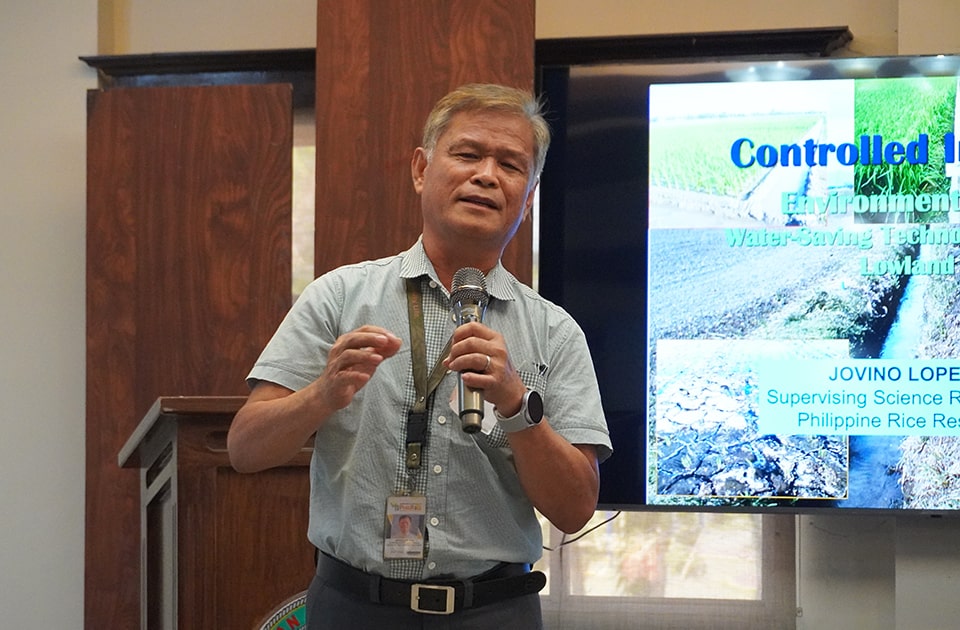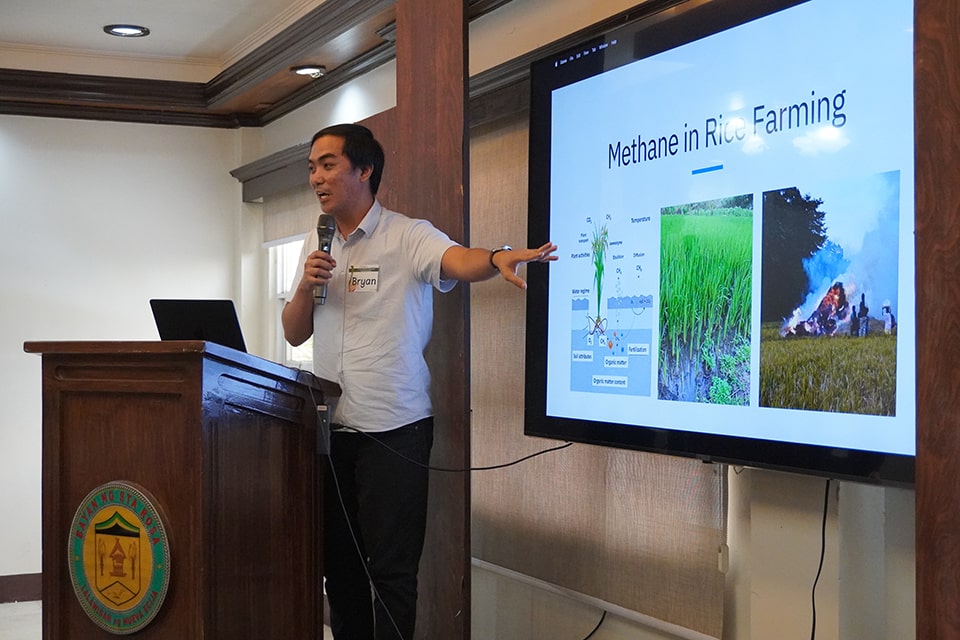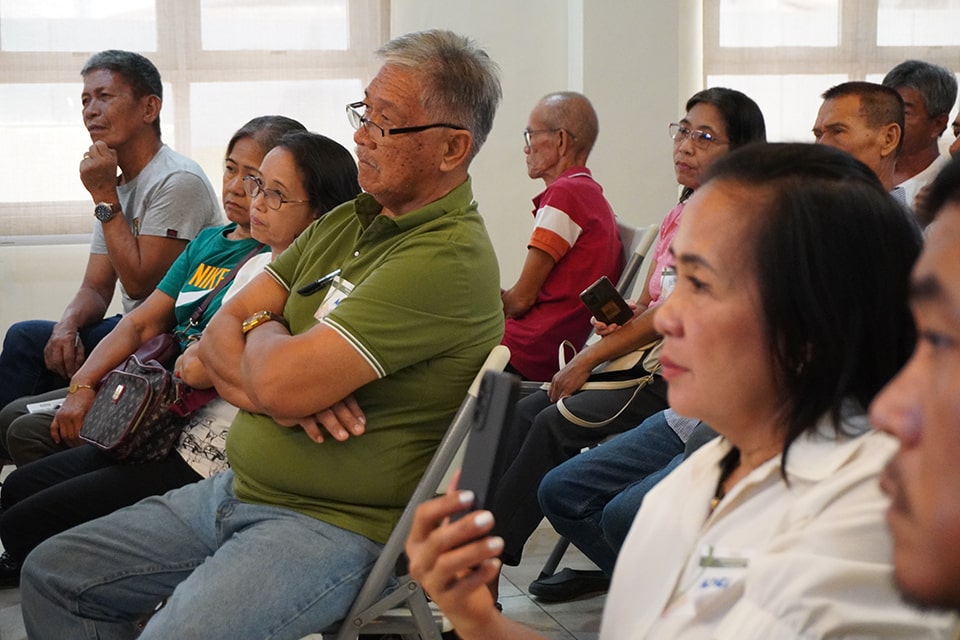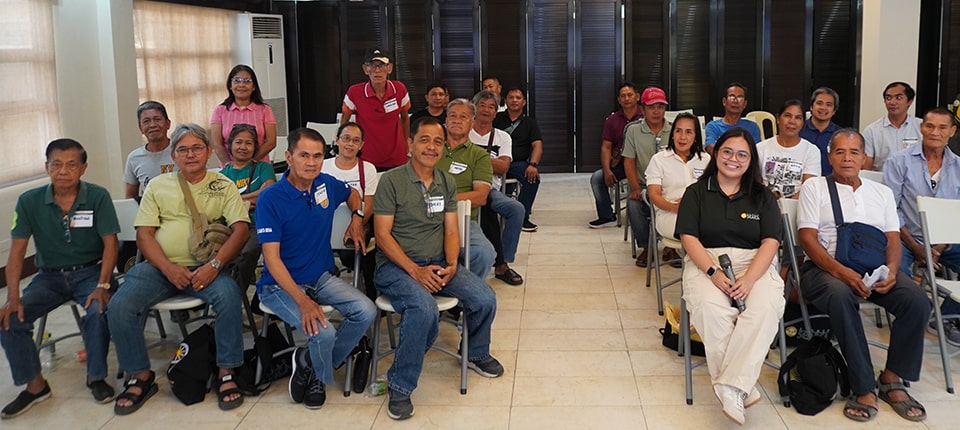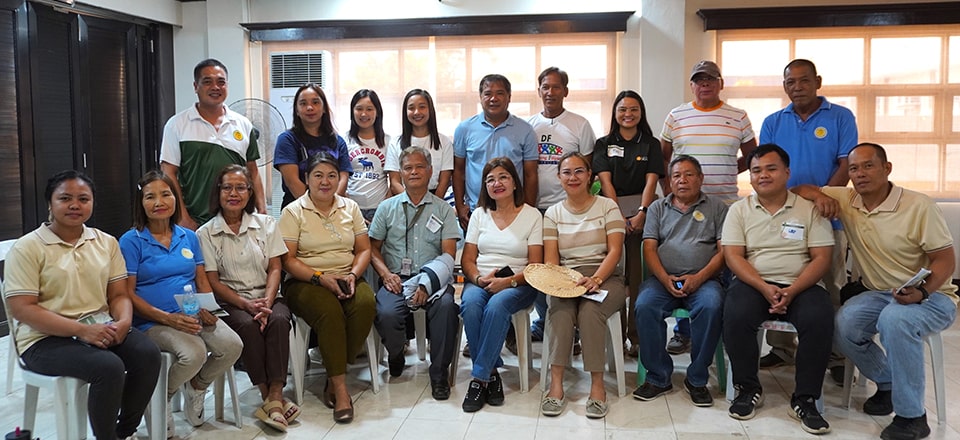
NUEVA ECIJA, Philippines – The Southeast Asian Regional Center for Graduate Study and Research in Agriculture (SEARCA) led the second stakeholder engagement workshop on Transforming Rice Farming through Low-Carbon Solutions on 23 April 2025 in Santa Rosa, Nueva Ecija. The workshop was conducted in partnership with Leads Agricultural Products Corporation (Leads), Philippine Rice Research Institute (PhilRice), and the Municipal Government of Santa Rosa, Nueva Ecija.
The workshop convened over 100 stakeholders from across the rice value chain Participants included rice farmer groups and associations, irrigators' association, and key officials and staff from the Municipal Agricultural Office and local government unit.
In-depth discussions during the workshop centered on greenhouse gas emissions from rice cultivation and the promotion of mitigation practices through low-carbon initiatives.
In his welcome message, Mr. Raffy Rey Hipolito, Municipal Administrator, emphasized the importance of multi-stakeholder and inter-institutional collaboration in addressing climate change at the community level.
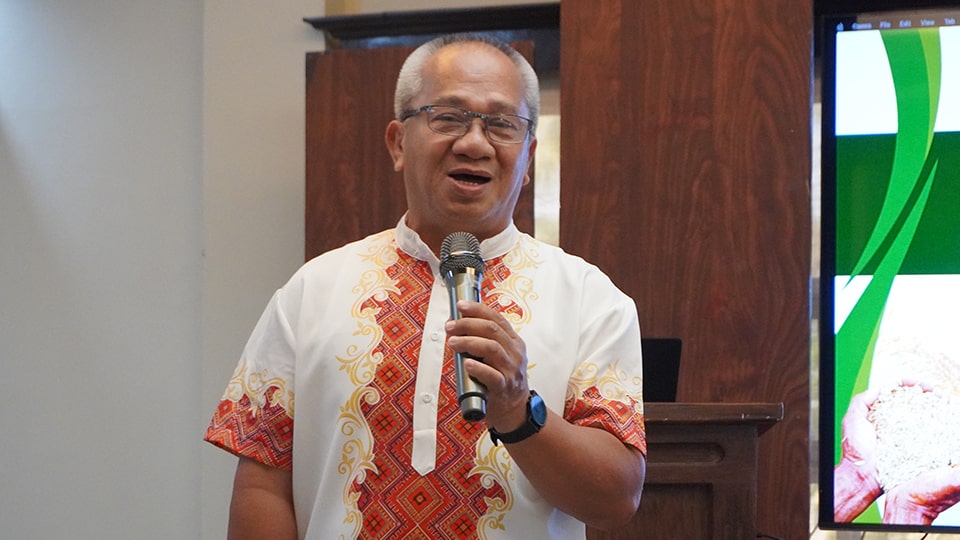
Ms. Ma. Christina Corales, Program Specialist at the SEARCA Emerging Innovation for Growth Department (EIGD), presented the Center's ongoing initiatives related to low carbon agriculture, including workshops and capacity-building activities for various stakeholders. She outlined the workshop's objectives: to introduce low-carbon farming practices and technologies as well as carbon credit opportunities in rice farming.
Dr. Arnan Araza, Digital and Climate-Smart Agriculture Manager at Leads Agri, opened the discussions with an overview of climate change and its impacts on the Philippine rice sector. He detailed different strategies to reduce greenhouse gas (GHG) and carbon emissions from rice farming through climate-smart agriculture (CSA), including alternate wetting and drying (AWD) irrigation, and efficient water and fertilizer management. Dr. Araza urged participants to take proactive steps through policymaking, community initiatives, or individual lifestyle changes to contribute to climate resilience in agriculture.
Agriculturist Jovino de Dios, Division Head of the Agronomy Soils and Plant Physiology Division at PhilRice Muñoz, focused his presentation on practical and water-efficient techniques that can significantly reduce carbon emissions in irrigated rice systems. He emphasized that proper water management is one of the most accessible and impactful solutions for smallholder farmers.
Engr. Bryan Baltazar, Science and Technology Fellow at the Department of Science and Technology (DOST) Region III, discussed the basics of methane emission measurement in rice-based farming systems. He cited methodologies such as the static chamber method, micrometeorology, and remote sensing. He explained how these tools aid in understanding the environmental impact of rice farming and in facilitating participation in climate finance mechanisms like carbon credit programs.
Building on his earlier presentation, Dr. Araza introduced potential incentive mechanisms for farmers, including carbon credits that reward emission-reducing practices like AWD. He also discussed a potential collaboration among SEARCA, Leads Agri, and other stakeholders to advance low-carbon rice farming. The initiative aims to reduce GHG emissions through the adoption of AWD irrigation, supported by digital tools such as Monitoring, Reporting, and Verification (MRV) systems, drones, and environmental sensors. These technologies are instrumental in accurately monitoring and verifying both emissions and the corresponding carbon credits, ensuring transparency and accountability.
Breakout sessions led by Ms. Corales and Ms. Stella Faye Estrella, Program Associate at SEARCA's EIGD, sought to gather stakeholders' feedback and attitudes toward adopting low-carbon practices, the support they need, and their interest in participating in pilot projects for carbon credit initiatives.
In closing, Atty. Engr. Eric Reynoso, SEARCA EIGD Program Head, acknowledged the significant challenges posed by climate change to agriculture, but emphasized the potential of science-based solutions—such as AWD, improved rice straw management, and carbon finance. He reaffirmed SEARCA's commitment to supporting these efforts and called on stakeholders to continue working together toward cultivating not only rice, but also resilience, opportunity, and a more sustainable future for rural communities.
